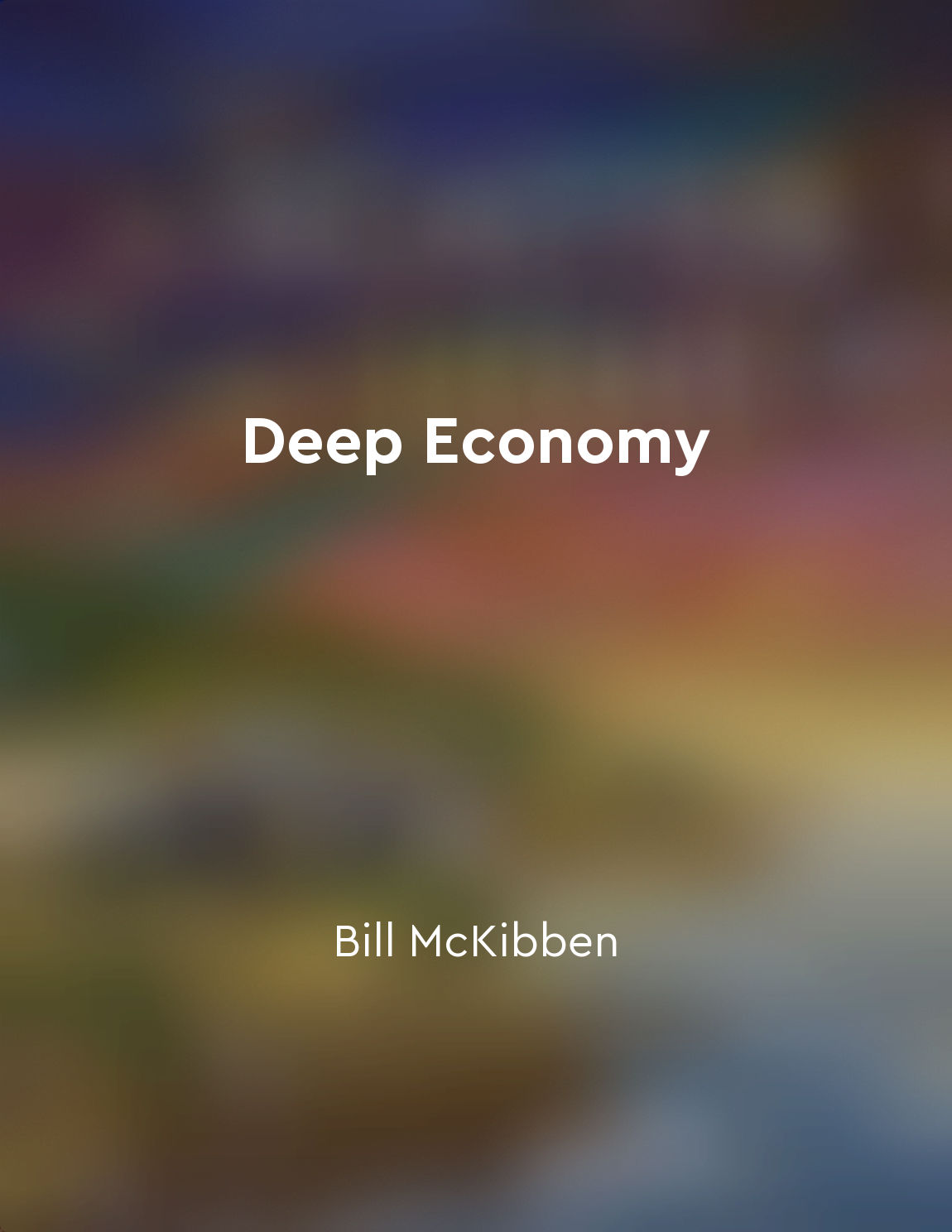Economic growth does not equal progress from "summary" of Deep Economy by Bill McKibben
The notion that more economic growth automatically translates into progress is deeply ingrained in our society. We are conditioned to believe that a rising GDP is synonymous with a better quality of life for everyone. However, this assumption is flawed and dangerous. As Bill McKibben argues in 'Deep Economy', economic growth does not necessarily lead to progress in terms of human well-being, environmental sustainability, or social cohesion. One of the main reasons why economic growth does not equal progress is that it often comes at the expense of the environment. In our relentless pursuit of GDP growth, we have depleted natural resources, polluted the air and water, and caused irreversible damage to ecosystems. This shortsighted approach to development has led to climate change, loss of biodiversity, and other environmental crises that threaten the very foundations of our civilization. Moreover, the benefits of economic growth are not distributed evenly among the population. As McKibben points out, the gap between the rich and the poor has widened in recent decades, despite overall economic growth. This means that a rising GDP does not necessarily translate into improved living standards for the most vulnerable members of society. In fact, it often exacerbates social inequalities and injustices. Another reason why economic growth does not necessarily lead to progress is that it prioritizes quantity over quality. In our consumerist culture, we are constantly encouraged to buy more, consume more, and produce more, regardless of the long-term consequences. This obsession with growth at all costs has led to a society that is focused on material wealth and consumption, rather than on the things that truly matter – such as relationships, community, and personal well-being.- It is clear that economic growth does not automatically result in progress. In fact, unchecked growth can lead to environmental degradation, social inequalities, and a loss of human values. As McKibben argues, we need to rethink our obsession with GDP and instead focus on building a more sustainable, equitable, and resilient economy that truly serves the well-being of all people and the planet.


